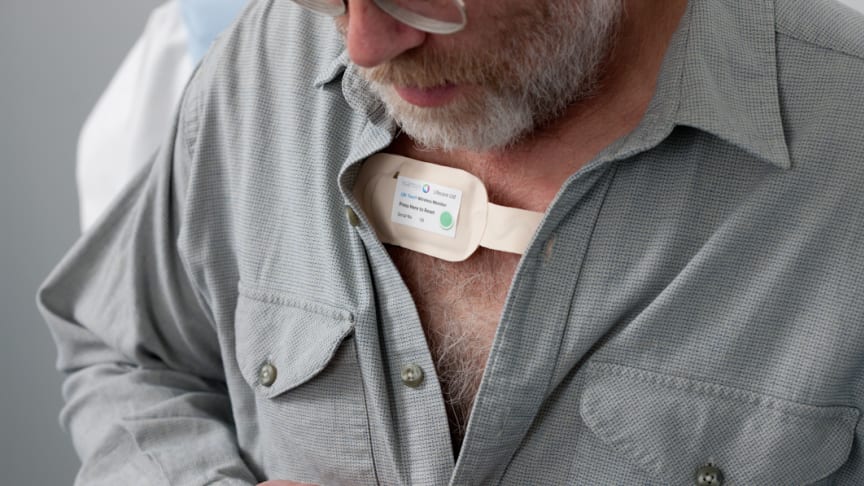
Two hospitals in Manchester, UK, are implementing a new monitoring device for Covid-19 that could allow doctors to intervene quicker when patients’ conditions deteriorate.
The Christie NHS Foundation Trust and the Manchester University NHS Foundation Trust (MFT) are using the Isansys Lifecare Patient Status Engine (PSE) as part of the Cosmic (Continuous Signs Monitoring In Covid-19 patients) study to monitor Covid-19 patients in hospital – but it’s also being used to monitor them at home.
Cancer patients typically experience poorer outcomes and higher death rates than those without the disease when afflicted by Covid-19, and although one recent study suggested this could be due to them generally being older and having more underlying conditions, the PSE could help doctors to manage the severity of the virus at cancer specialist The Christie.
Resident medical oncologist Professor Fiona Thistlethwaite said: “Unfortunately some patients who are suffering from Covid-19 on our hospital wards can become seriously unwell.
“By using the PSE, we hope to be able to identify these patients early and this means we can optimise their management without the need for them to go to intensive care.
“We can also monitor the patients’ vital signs on a screen located in a different part of the hospital and we hope that, eventually, this will mean that as well as keeping our patients safe, we can reduce exposure to the virus for our staff.”
Professor John Radford, director of research at The Christie, who is leading the RECAP project which is monitoring patients recovering at home with the PSE, added: “The technology offers us a way of keeping a close eye on our patients while they’re at home.
“We hope the PSE will help us detect when a cancer patient with Covid-19 is deteriorating and needs to be reviewed in hospital.
“This is the first time this technology has been used for patients who aren’t in hospital in the UK, so it’s truly innovative, and if successful, could be used in other areas of medicine.”
According to Dr Anthony Wilson, intensive care consultant at Manchester Royal Infirmary, part of MFT, approximately 10% to 20% of hospital inpatients at the infirmary with Covid-19 will need to be admitted to intensive care, and PSE could improve their chances of survival.
“The intensive care team at MFT has cared for many people with the Covid-19 infection in the last few months,” he added.
“This new technology may allow us to intervene earlier and give patients a greater chance of getting better.”
How does Isansys Lifecare Covid-19 monitoring device work?
The Patient Status Engine (PSE) collects data from a wireless patch stuck to a patient’s chest and collects continuous physiological data, including heart rate, respiration rate, heart rate variability, ECG, oxygen saturation, blood pressure and body temperature.
It then uses these measures, together with nurse-scored data, such as consciousness levels, to calculate a minute-by-minute NEWS 2 score – the standard early warning measure of patient deterioration.
The British Medical Association recently warned that hospital critical care units were in danger of running out of capacity as the country experiences a second spike in Covid-19, and Isansys Lifecare CEO Keith Errey believes PSE could help manage that capacity by allowing doctors to better triage patients by severity.
“The PSE has the capability to expand overall critical care capacity by continuously monitoring patients and establishing higher dependency beds in lower acuity areas of the hospital,” he said.
“This allows hospitals to preserve capacity for those Covid-19 patients who need escalated care and is also enabling healthcare providers to offer the necessary care for Covid-19 patients being treated at home.”






